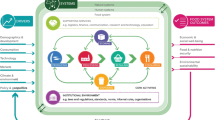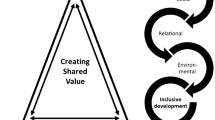Abstract
This paper explores food commoning through an ethnographic case study in Catalonia as our primary site while the Norwegian case is juxtaposed as a comparison, two agriculturally and economically different European countries. The ethnography analyses cooperation networks between organic food producers’ and consumers’ involving different nodes of community gardening initiatives, self-employed growers, local farmers and all of them under a unique cooperative integrating a community economy. The result it is a myriad of exchange practices ranging from reciprocity and barter to market exchange without intermediaries through on-line platforms. Along these exchanges different options of currency intervene giving rise to novel social and cooperative relations. Similar initiatives in Norway show less variation and are less experimental regarding forms of payment but share similarities in relation to material articulations, concerns and forms of alternative practice. Although these novel forms do not represent a complete break from the more standardized supply chains, and hence from the oppositions/contradictions of production and consumption, the participants see themselves as contributing to a more general process of de-commodification of food. We explore the extent to which the meaning and moral values are mutually constituted in relation to socioeconomic exchanges and environmental caring that each person experiences based on different forms of cooperation and reciprocity. Food, we suggest, is more than a commodity on the market that we may influence through our role as consumers. It is a significant focal point connecting our lives to those of others that articulates one’s relations to society in a political manner.
Similar content being viewed by others
Notes
Personal communication from the Catalan Integral Cooperative (CIC) ordering centre coordinators’ in 2015.
Distribution is considered by the cooperative as a public service because food is a basic need, people in charge of distribution are paid by the cooperative with a social currency called “ecobasics” that can only be used to pay for products considered basic and produced inside the cooperative.
Abbreviations
- ANF:
-
Alternative Food Networks
- CES:
-
Community Exchange System
- CIC:
-
Catalan Integral Cooperative
- CCPAE:
-
Catalan Council of Organic Agricultural Production
- CSA:
-
Community Supported Agriculture
- EU:
-
European Union
- MAPAMA:
-
Ministry of food, agriculture and environment
- SC:
-
Social Currency
References
Alkon, A. (2013). Food justice, food sovereignty and the challenge of neoliberalism. In International conference on Food sovereignty. A critical dialog, 14–15 September, Yale University (pp. 1–15).
Andelslandbruk. (2016). (share farming organization). Presentation. 2016. http://samfundsnyttigtlandbrug.dk/media/1344323/marte-guttulsroed.pdf. Accessed June 15, 2017.
Association ecological value (Ecovalia). (2011). http://www.ecovalia.org/es/. Accessed April 2016.
Beckert, J. (2014). The great transformation of embeddedness: Karl Polanyi and the new economic sociology. In Chris Hann & Keith Hart (Eds.), Market and society: The great transformation today (pp. 38–55). New York: Cambridge University Press.
Belasco, W. (1993). Appetite for change: How the counterculture took on the food industry. Ithaca: Cornell University Press.
Bos, E., & Owen, L. (2016). Virtual reconnection: The online spaces of alternative food networks. Journal of Rural Studies, 45, 1–14.
Branden, B., & Purcell, M. (2006). Avoiding the local trap. Scale and food systems in planning research. Journal of Planning Education and Research, 26, 195–207.
Catalan Council of Organic Agricultural Production (CCPAE). (2014). Statistics annual report. http://www.ccpae.org/docs/memoria/ccpae_memoria2014.pdf. Accessed April 2016.
Counihan, C., & Siniscalchi, V. (2014). Food activism agency, democracy and economy. London: Bloomsbury.
DEBIO. (2017). Statistics and mapping. https://debio.no/statistikk. Accessed June 11, 2017.
DuPuis, E. M., & Goodman, D. (2005). Should we go ‘‘home’’ to eat?: Toward a reflexive politics of localism. Journal of Rural Studies, 21, 359–371.
Falguera, V., Aliguer, N., & Falguera, M. (2012). An integrated approach to current trends in food consumption: Moving toward functional and organic products? Food Control, 26(2), 274–281.
Fernandez, A., & Miró. I. (2016). La economía social i solidaria a Barcelona. Comissionat d’Economia Cooperativa, Social i Solidària—Ajuntament de Barcelona. http://www.laciutatinvisible.coop/wp-content/uploads/2016/02/essb_def3.pdf. Accessed February 2016.
FiBL and IFOAM. (2014). The world of organic agriculture. Statistics and emerging trends 2014. Frick and Bonn. http://orgprints.org/25172/1/willer-lernoud-2014-world-of-organic.pdf. Accessed April 2016.
Fisher, E. F. (2014). The good life Aspiration, dignity, and the anthropology of wellbeing. Standford, CA: Standford University Press.
Forsberg, E. M. (2004). Økologisk mat i Norge: økonomiske prosesser mellom samvirke og marked. Cand. Polit thesis at the Department of Social Anthropology. Oslo: University of Oslo.
Grasseni, C. (2013). Beyond alternative food networks. London: Bloomsbury.
Grasseni, C. (2014). Family farmers between re-localisation and co-production. Anthropological Notebooks, 20(3), 49–66.
Gudeman, S. (2001). The anthropology of economy: Community, market, and culture. Oxford: Wiley.
Gudeman, S. (2008). Economy’s tension: The dialectics of community and market. Oxford: Berghahn.
Hart, K., Laville, J.-L., & Cattani, A. D. (2010). The human economy. Cambridge: Polity Press.
Henderson, E., & Van En, R. (2007). Sharing the harvest: A citizen’s guide to community supported agriculture (2nd ed.). White River Junction: Chelsea Green Publishing Company.
Holz-Clause, M. (2009). Understanding community supported agriculture. Iowa State University. http://www.agmrc.org/businessdevelopment/operating-a-business/direct-marketing/ articles/understanding-community-supported-agriculture/. Accessed February 2016.
Hvitsand, C. (2014). Økologisk spydspiss: Andelslandbrukets rolle i å fremme bioøkonomi, og økt kunnskap om og forbruk av økologisk Mat. TF-rapport nr. 341. Bø: Telemarksforskning.
Jacobs, K., & Manzi, T. (2013). New localism, old retrenchment: The “Big Society”, housing policy and the politics of welfare reform. Housing, Theory and Society, 30(1), 29–45.
Jacobsen, E., & Dulsrud, A. (2007). Will consumers save the world? The framing of political consumerism. Journal of Agriculture and Environmental Ethics, 20, 469–482.
Jessop, B. (2002). Liberalism, neoliberalism, and Urban Governance: A state-theoretical perspective. Antipode, 34(3), 452–472.
Kjærnes, U., Harvey, M., & Warde, A. (2007). Trust in food. A comparative and institutional analysis. Houndmills: Palgrave Macmillan.
Lowndes, V., & Pratchett, L. (2012). Local governance under the coalition government: Austerity, localism and the ‘Big Society’. Local Government Studies, 38(1), 21–40.
MAPAMA (Ministry of food, agriculture, fisheries and environment). (2013). Spanish Department of Agriculture natural Agricultural Statistics Service: 2013. http://www.mapama.gob.es/es/alimentacion/temas/la-agricultura-ecologica/Estadisticas_AE_2013_tcm7-351187.pdf Accessed April 2016.
Martha, N. (2003). Capabilities as fundamental entitlements: Sen and social justice”. Feminist Economics, 9(2–3), 33–59.
McCabe, A. (2010). Below the radar in a big society? Reflections on community engagement, empowerment and social action in a changing policy context. Third Sector Research Centre, Working Paper 51.
McLeod, D. (1976). Urban–rural food alliances: A perspective on recent community food organizing. In R. Merrill (Ed.), Radicalizing agriculture (pp. 188–211). New York: Harper and Row.
Narotzky, S. (2013). Moral outrage and political mobilization: Reactions to austerity measures and the economic crisis. Suomen Antropologi, 38(4), 43–47.
OAPC. Organic Agricultural Production and Consumption. Statistics. (2013). Catalan Governement. http://pae.gencat.cat/ca/estadistiques-observatori-pae/estadistiques-catalunya/fitxes-observatori/. Accessed April 2016.
Polanyi, K., [1944] (1957). The great transformation. Boston: Beacon Press.
Raynolds, L. T. (2004). The globalization of organic agro food networks. World Development, 32(5), 725–743.
Renting, H. et al. (2003). Understanding alternative food networks: Exploring the role of short food supply chains in rural development. Environment and Planning, 35, 393–411.
Riksrevisjonen (Office of the Auditor General in Norway). 2015–2016. Report 3.7 2015–2016. https://www.riksrevisjonen.no/en/Reports/Pages/OrganicAgriculture.aspx. Accessed June 11, 2017.
Sen, A. K. (1979). Personal utilities and public judgements: Or what’s wrong with the welfare economics? Economic journal, Royal Eonomic Society, 89(355), 537–558.
Sharzer, G. (2014). No Local. Why Small-Scale Alternatives Won’t Change The World. Zero Books.
Socialogue Ipsos. (2013). http://www.ipsos.es/sites/default/files/documents/np_socialogue201311_2.pdf. Accessed April 2016.
Standing, G. (2011). The precariat. The new dangerous class. London: Bloomsbury.
Terragni, L., Torjusen, H., & Vittersø, G. (2009). The dynamics of alternative food consumption: contexts, opportunities and transformations. Anthropology of Food. https://aof.revues.org/6400. Accessed March 2016.
Torjusen, H. (2001). Økologisk mat. Hindringer og muligheter for forbruk av økologisk mat sett fra forbrukernes side (Organic food: obstacles and options for organic food consumption seen from a consumer’s perspective) Oppdragsrapport nr. 16-2001, SIFO. http://www.sifo.no/files/file48459_oppdragsrapport_2001-16eweb.pdf. Accessed February 2016.
Tregear, A. (2011). Progressing knowledge in alternative and local food networks: Critical reflections and a research agenda. Journal of Rural Studies, 27, 419–430.
Urgenci (European CSA Research Group). (2016). Overview of Community Supported Agriculture in Europe. http://urgenci.net/the-csa-research-group/ Accessed June 15, 2017.
Vittersø, G. (2001). Fra Helios til Prix. Begrensinger og muligheter for salg av økologisk mat i dagligvarehandler [From Helios to Prix: limitations and options to the purchase of organic products in supermatkets chain]. Oslo: Oppdragsrapport nr. 15-2001-SIFO.
Wulvik, T. 2015. Organic food in Norway and Denmark. Why is Denmark more successful than Norway in raising the production and consumption of organic foodstuff? Bacheloroppgave i samfunnsernæring. Oslo: Høyskolen i Oslo og Akershus.
Acknowledgements
An earlier version of this paper was presented at the 2017 “Sovereignty, Contestation and ‘the Economy’”/”Sharing economies and the commons” International Conference organized by SOSCO (Research Group Sovereignty and Social Contestation) at Utrecht University, the Netherlands. This paper has been written thanks to a funding of the program NILS Science and Sustainability, ABEL Individual Mobility of Researchers (012-ABEL-IM-2014).
Author information
Authors and Affiliations
Corresponding author
Rights and permissions
About this article
Cite this article
Mestres, S.G., Lien, M.E. Recovering Food Commons in Post Industrial Europe: Cooperation Networks in Organic Food Provisioning in Catalonia and Norway. J Agric Environ Ethics 30, 625–643 (2017). https://doi.org/10.1007/s10806-017-9691-6
Accepted:
Published:
Issue Date:
DOI: https://doi.org/10.1007/s10806-017-9691-6




